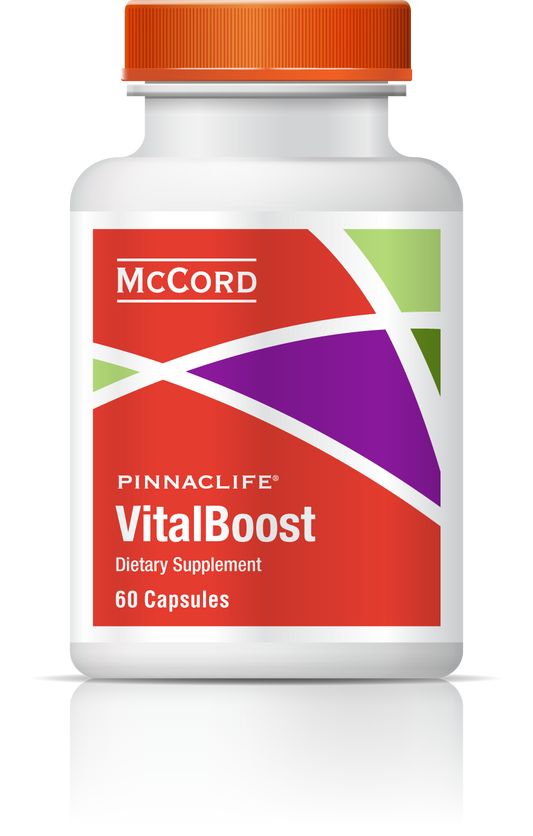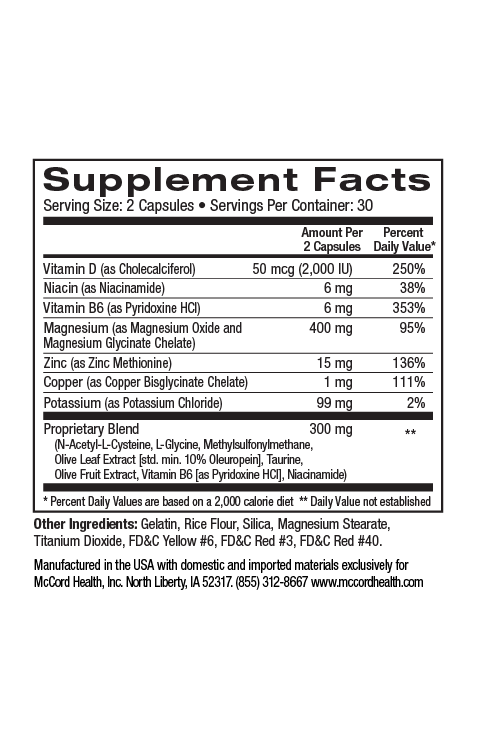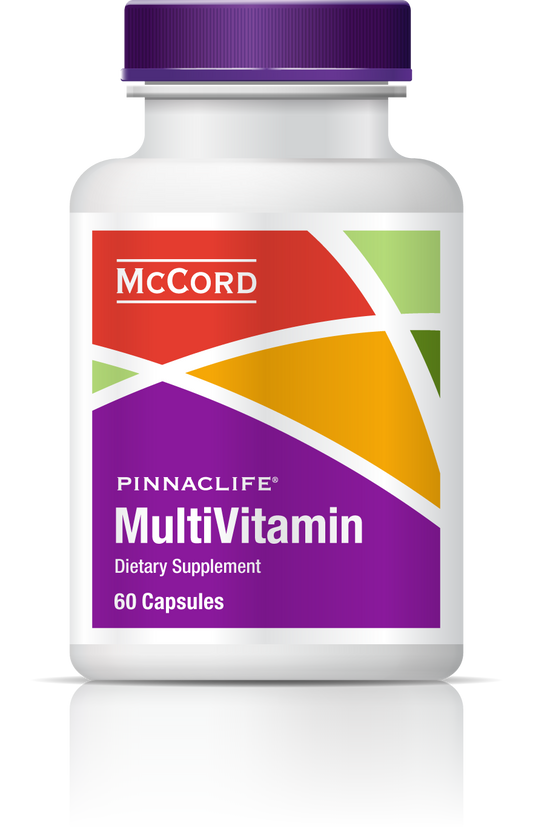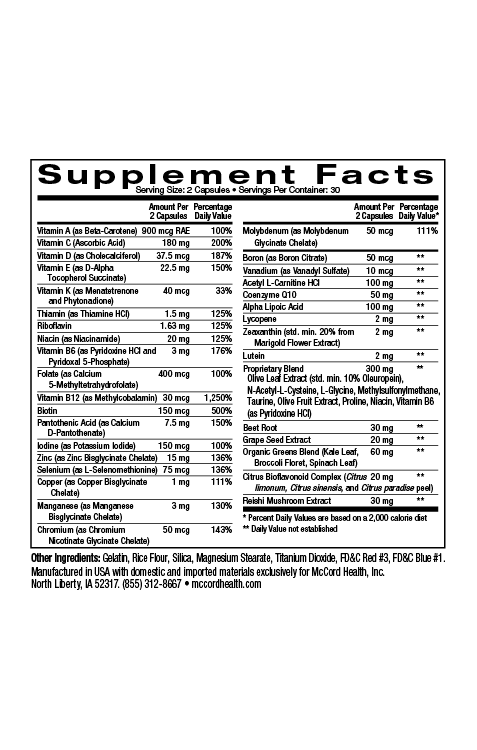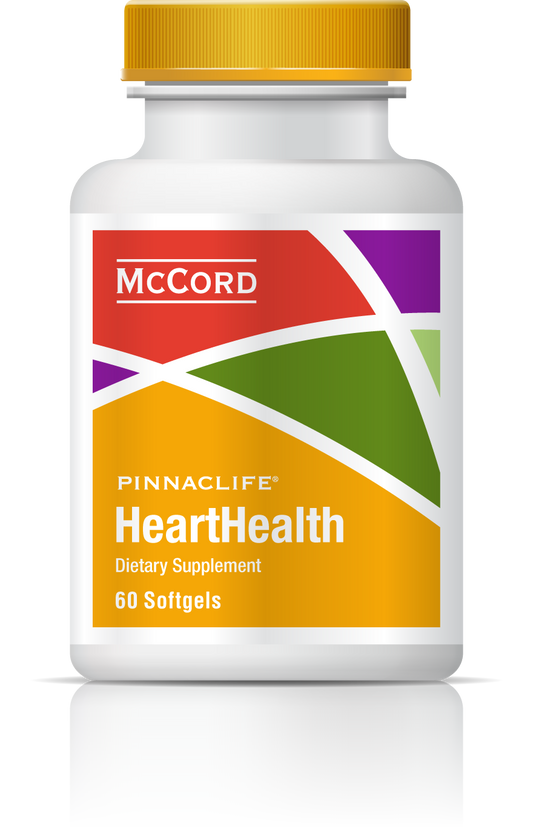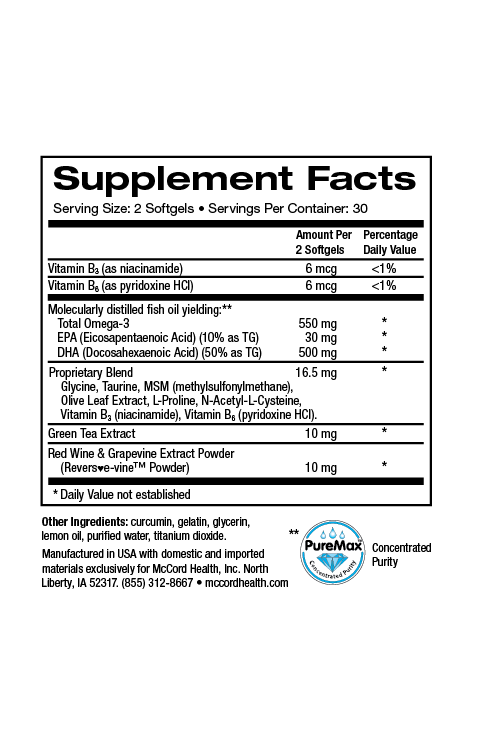Brain cells depend on a steady supply of nutrients and antioxidants to keep them healthy and functioning efficiently. Poor nutritional status can interfere with production of neurotransmitters and decrease neurological function, contributing to memory loss, confusion, mental fatigue, and more serious long term effects.
- Losing the ability to think and remember clearly is a major health concern for millions of people
- There is a big difference in simple forgetfulness and more serious cognitive decline
- Your brain has a high metabolic demand which makes it more vulnerable to disruptions in blood, oxygen, and nutrient supply
- You can protect your brain by providing it with adequate nutritional support
Tell Me More!
Am I just Forgetful - Or is it something more?
We all have lapses in our memory from time to time. This is a normal part of life that we are all familiar with, especially as we age. But what happens when it starts to feel like it might be more than a memory lapse?
People sometimes fear that their difficulty remembering things could be the first signs of more serious conditions like dementia or even Alzheimer's disease. In fact, a 2011 survey conducted for the MetLife Foundation found that Alzheimer’s disease is the second most feared disease in America after cancer, largely because so little is known about it and there are currently no cures.
While developing Alzheimer’s disease or other forms of dementia might be a very real concern for some people, it is important to remember that these conditions are different from the type of forgetfulness that typically comes with normal aging.
Our hope is to provide you and your loved ones with meaningful information and address some of the concerns or fears you may have regarding these neurological conditions. We also want to provide you with some simple steps that can help to stack the deck in your favor, and answer questions that you or your loved ones may have.
Defining Brain and Neurocognitive Disorders
Some common misconceptions about neurocognitive disorders can easily be addressed by defining a few key terms. The following definitions highlight the differences between some of the most common forms of neurocognitive disorders. The definitions are based on the combined descriptions provided by various sources including the United States Center for Disease Control (CDC), the Diagnostic and Statistical Manual of Mental Disorders 5th Edition (DSM-5), and the Alzheimer’s Association:
- Neurocognitive Disorder - “neuro” refers to the brain and nerves while “cognitive” pertains to thinking. The term neurocognitive disorder is a general term that describes when a person has problems with thinking due to issues related to their brain and nerve cells.
- Age-Related Cognitive Decline – the expected cognitive decline associated with normal healthy aging
- Mild Cognitive Impairment - an intermediate stage between the expected cognitive decline of normal aging and the more serious decline of dementia. It can involve problems with memory, language, thinking, and judgment that are greater than normal age-related changes.
- Dementia – a term used to describe a variety of conditions characterized by chronic or persistent impairments of mental processes. Dementia is typically caused by brain disease or injury and marked by memory disorders, personality changes, and impaired reasoning.
- Alzheimer’s Disease – one type of dementia, Alzheimer’s disease is a progressive mental decline that can occur in middle or old age, due to generalized degeneration of the brain with characteristic deposits of beta-amyloid protein plaques in the brain. It is the most common cause of premature senility and accounts for 60-80% of dementia cases.
- Medication-Induced Neurocognitive Disorder – a temporary or permanent cognitive impairment that can be directly attributed to the current or previous use of medications. Medications can be broadly defined to include drugs, alcohol, and other forms of chemical exposure.
- Delirium – an acutely disturbed state of mind that occurs in fever, intoxication, and other disorders and is characterized by restlessness, delusions, hallucinations, and/or incoherence of thought and speech.
As you can see, there are a wide variety of conditions that can be classified as neurocognitive disorders. Some of these are temporary while others are permanent, and some have a much greater impact on your overall health and well-being than others. Keep these definitions in mind as you read about and discuss these topics with your loved ones and healthcare providers.
Error: Memory Full!
After a lifetime of meeting new people, learning new things, and experiencing the world around us - it sometimes just becomes a lot for the brain to keep track of.
Think about the brain in the context of the memory on your phone or computer; after enough use, it gets filled with files and starts slowing down. It takes longer to search through those files than it did when the computer was brand-new.
Sometimes you need to get rid of old files to make room for new information - but many people would like to avoid deleting the old files - that is to say, they do not want to forget fond memories.
What if instead of deleting old files, we could increase the amount of information the hard drive holds? What if we could improve the processor so it can sort through the information faster?
Fortunately, the brain can do just this when we “exercise” our brains by learning new things and engaging in thoughtful activities as well as providing it with the nutrients that it needs to thrive.
The Hard Working Brain
Brain and nerve cells require a lot of energy and that means they need a lot of oxygen and nutrients provided by the blood. If blood flow to the brain is interrupted for just a few minutes, brain cells quickly begin to suffer because they do not have the fuel needed to keep them alive.
The brain may also become starved of nutrients if you are not consuming enough of them in your diet. Imagine how you would feel if you worked all day long and did not have any food to eat – your brain is no different. It’s easy to understand how the brain might not work as well when it does not get the nourishment it needs.
One downfall to brain cells working so hard is that they produce a lot of waste products. If these waste products are not neutralized and removed, they can accumulate and contribute to oxidative damage, cell death, and inflammation that contributes to a variety of disease processes. By providing antioxidant support to neutralize free radicals, we can help to slow or even reverse some of the oxidative processes that contribute to aging and neurocognitive disorders.
Antioxidants for Brain Health
- Olive Leaf Extract (hydroxytyrosol and oleuropein)8–11 - Olive extracts and polyphenols are increasingly being investigated for their antioxidant effects that may help to support and protect brain cells.12 Polyphenols from olives have been shown to increase genetic expression of key cellular antioxidants that protect brain cells from free-radical damage that contributes to neurodegenerative processes.
- N-acetyl-L-cysteine (NAC)13–16 - NAC is an amino acid that is essential to produce glutathione - one of the cell's most important antioxidants and detoxifying molecules. Glutathione is vital for the removal of oxidative free-radicals and metabolic wastes that can accumulate and damage brain cells. Evidence suggests that NAC and glutathione play an important role in neurological conditions including multiple sclerosis, ALS, Parkinson’s disease, Huntington’s disease, Alzheimer’s disease, and traumatic brain injury.17 Low glutathione levels have been associated with increased risk of neurodegenerative disorders while supplementation with NAC has been shown to decrease the risk.13–16 Oral glutathione does not get absorbed, however oral NAC is a proven remedy for low glutathione levels.
- Grapevine/Red Wine Extract (trans-resveratrol)18–20 - Supplementing with trans-resveratrol has been shown to have favorable effects in lowering specific biomarkers of Alzheimer’s disease, prompting researchers to continue looking at potential roles for trans-resveratrol in promoting brain health.21 Other studies have shown that resveratrol helps to facilitate the breakdown of beta-amyloid that is associated with Alzheimer’s disease and protects the brain from beta-amyloid toxicity.22,23 Resveratrol has also demonstrated neuroprotective effects in a variety of conditions including traumatic brain injury and neurodegenerative disorders like multiple sclerosis and ALS.6,18,19,24
- Turmeric (Curcumin)25–28 - Curcumin is an extremely potent antioxidant with significant evidence supporting its use for nourishing and protecting cells from oxidative damage. It has been shown to protect against neurological damage, and play a role in neurotransmission while also having potent anti-inflammatory properties.28,29
- Green Tea Extract (ECG/EGCG)6,30 - Potent antioxidants from green tea have been shown to improve cognitive function and memory while providing nutritional support for brain cells that are under stress.6,31
- Broccoli Extract (sulforaphane)31,32 - Has been shown to induce the expression of specific genes that are associated with neuroprotective antioxidant and anti-inflammatory activities and lower risks of related neurodegenerative diseases.31,32 Researchers have also identified a potential role for sulforaphane in cases of ischemic (lack of oxygen/blood flow) brain injuries and traumatic brain injuries (TBI).33,34
- Rhodiola rosea extract (Rosavins)35–37 - Key compounds found in R. rosea may help support brain cells during times of stress allowing for improved mental performance, and some studies have suggested a potential role in improving cognition.35–37
Other Nutrients for Brain Health
- L-taurine38–40 - An amino acid with multiple roles in brain health including transmitting nerve impulses (neurotransmission).38,39 Studies have indicated it may play an important role in cognition, learning, and retention while exhibiting neuroprotective effects during aging.
- Magnesium41,42 - Required in more than 300 biochemical reactions in the body, making it amongst the most important minerals in the diet. Without it, cells cannot divide and nerve impulses cannot be sent - leading to atrophy and cell death.41,42
- Prebiotic Fiber43–53 - Can help support and promote healthy intestinal bacteria that are known to play an important role in brain health and neuronal signaling. Evidence supports the benefits of healthy intestinal bacteria in conditions like depression, chronic fatigue syndrome, premature aging, chronic stress, autism spectrum disorders, and neurodegenerative disorders.
- Fish Oil / Omega-3 Fatty Acids - Omega-3’s, especially DHA, have been shown to play an essential role in the developing brain and nerves because they are a vital component of brain and nerve cell membranes and myelin.54 Deficiencies are linked to a variety of neurological conditions including neurodegenerative disorders.55–57 Omega-3 fatty acids are considered essential fatty acids because they cannot be synthesized in the body, therefore must be obtained entirely through the diet and/or supplements.
- B-Vitamins B12 (methylcobalamin) and B9 (folate)58-60 - B vitamins are all vital to the growth and development of brain cells and nerves, but perhaps the most important are folate and vitamin B-12. Deficiencies during pregnancy are known to result in severe birth defects and mental retardation. Deficiencies over a lifetime have been associated with increased risks of neuro-degenerative disorders.58,61–64
Protecting The Brain
Every step you take is like adding another layer of protection for your brain. Begin by limiting your exposure to unhealthy foods, chemicals, and toxins through dietary and lifestyle modifications. Then begin incorporating healthy foods and the nutrients we have discussed to help build up your body’s defenses.
You can also exercise you brain to help increase cognitive fitness. You can do this by engaging in challenging and creative mental tasks such as reading, doing puzzles or brain teasers, learning a new skill or hobby, engaging in thoughtful conversations, making art, and even quiet meditation. Research has continuously shown that the more you use your mind, the less likely you are to lose it. So always find fun and exciting ways to engage yourself mentally and give your brain the exercise it needs to stay healthy.
And don’t forget to laugh!
Always Communicate
Perhaps the most important thing you can do for you and your loved ones is to learn to openly communicate with them as well as your healthcare providers about some of your fears, concerns, or wishes for the future.
Understand that neurocognitive disorders can have a tremendous impact on the lives of friends, family, and loved ones so it is important to discuss the issue with those people. Your healthcare providers are vital resources that are happy to help you along the way, so do not be afraid to start a dialogue with them. Always be sure to ask your healthcare providers if you have any questions or do not understand something.
Each of these steps you take will help add another layer of support and protection for your brain and mind.
References
- Gilgun-Sherki Y, Melamed E, Offen D. Oxidative stress induced-neurodegenerative diseases: the need for antioxidants that penetrate the blood brain barrier. Neuropharmacology. 2001;40(8):959–75.
- Li W, Busu C, Circu ML, Aw TY. Glutathione in cerebral microvascular endothelial biology and pathobiology: implications for brain homeostasis. Int J Cell Biol. 2012;2012:1–14.
- Toth C. Diabetes and neurodegeneration in the brain. In: Zochodne DW, Malik RA, eds. Handbook of clinical neurology.Vol 126. 126th ed. Calgary: Elsevier B.V.; 2014:489–511.
- Furness JB, Callaghan BP, Rivera LR, Cho H-J. The enteric nervous system and gastrointestinal innervation: integrated local and central control. Adv Exp Med Biol. 2014;817:39–71.
- Hill JM, Bhattacharjee S, Pogue AI, Lukiw WJ. The gastrointestinal tract microbiome and potential link to Alzheimer’s disease. Front Neurol. 2014;5(April):43.
- Sun AY, Wang Q, Simonyi A, Sun GY. Botanical phenolics and brain health. Neuromolecular Med. 2008;10(4):259–74.
- Ames BN. Oxidants, Antioxidants, and the Degenerative Diseases of Aging. Proc Natl Acad Sci. 1993;90(17):7915–7922.
- Haloui E, Marzouk B, Marzouk Z, Bouraoui A, Fenina N. Hydroxytyrosol and oleuropein from olive leaves : Potent anti-inflammatory and analgesic activities. J Food, Agric Environ. 2011;9(3&4):128–133.
- Zhang X, Cao J, Zhong L. Hydroxytyrosol inhibits pro-inflammatory cytokines, iNOS, and COX-2 expression in human monocytic cells. Naunyn Schmiedebergs Arch Pharmacol. 2009;379(6):581–6.
- Sarsour EH, Kumar MG, Kalen AL, Goswami M, Buettner GR, Goswami PC. MnSOD activity regulates hydroxytyrosol-induced extension of chronological lifespan. Age (Omaha). 2012;34:95–109.
- González-Correa JA, Navas MD, Lopez-Villodres JA, Trujillo M, Espartero JL, De La Cruz JP. Neuroprotective effect of hydroxytyrosol and hydroxytyrosol acetate in rat brain slices subjected to hypoxia-reoxygenation. Neurosci Lett. 2008;446(2-3):143–6.
- Hashmi MA, Khan A, Hanif M, Farooq U, Perveen S. Traditional Uses, Phytochemistry, and Pharmacology of Olea europaea (Olive). Evid Based Complement Alternat Med. 2015;2015:541591.
- Adair JC, Knoefel JE, Morgan N. Controlled trial of N-acetylcysteine for patients with probable Alzheimer’s disease. Neurology. 2001;57(8):1515–1517.
- Townsend DM, Tew KD, Tapiero H. The importance of glutathione in human disease. Biomed Pharmacother. 2003;57:145–155.
- Jain A, Mårtensson J, Stole E, Auld PA, Meister A. Glutathione deficiency leads to mitochondrial damage in brain. Proc Natl Acad Sci U S A. 1991;88(5):1913–7.
- Fu A-L, Dong Z-H, Sun M-J. Protective effect of N-acetyl-L-cysteine on amyloid beta-peptide-induced learning and memory deficits in mice. Brain Res. 2006;1109(1):201–6.
- Shahripour RB, Harrigan MR, Alexandrov A V. N-acetylcysteine (NAC) in neurological disorders: mechanisms of action and therapeutic opportunities. Brain Behav. 2014;4(2):108–22.
- Sun AY, Wang Q, Simonyi A, Sun GY. Resveratrol as a therapeutic agent for neurodegenerative diseases. Mol Neurobiol. 2010;41(2-3):375–83.
- Porquet D, Casadesús G, Bayod S, et al. Dietary resveratrol prevents Alzheimer’s markers and increases life span in SAMP8. Age (Dordr). 2013;35(5):1851–65.
- Basli A, Soulet S, Chaher N, et al. Wine polyphenols: potential agents in neuroprotection. Oxid Med Cell Longev. 2012;2012(Article ID 805762):1–14.
- Turner RS, Thomas RG, Craft S, et al. A randomized, double-blind, placebo-controlled trial of resveratrol for Alzheimer disease. Neurology. 2015;published :1–10.
- Lagouge M, Argmann C, Gerhart-Hines Z, et al. Resveratrol improves mitochondrial function and protects against metabolic disease by activating SIRT1 and PGC-1alpha. Cell. 2006;127(6):1109–22.
- Baxter R a. Anti-aging properties of resveratrol: review and report of a potent new antioxidant skin care formulation. J Cosmet Dermatol. 2008;7:2–7.
- Vang O, Ahmad N, Baile C a, et al. What is new for an old molecule? Systematic review and recommendations on the use of resveratrol. PLoS One. 2011;6(6):e19881.
- Cole GM, Teter B, Frautschy SA. Neuroprotective Effects of Curcumin. Adv Exp Med Biol. 2007;595:197–212.
- Douichene S, Djebli, N. Neuroprotective Effect of Curcumin with a Fixator of Absorption against both Aluminium Neurotoxicity and Alzheimer’s Disease (Experimental Studies in Mice). J Alzheimer’s Dis Park. 2012;02(03):2–5.
- Kulkarni S, Dhir A, Akula KK. Potentials of curcumin as an antidepressant. Sci World J. 2009;9:1233–41.
- Kulkarni SK, Dhir A. An overview of curcumin in neurological disorders. Indian J Pharm Sci. 2010;72(2):149–54.
- Xu Y, Ku B, Cui L, et al. Curcumin reverses impaired hippocampal neurogenesis and increases serotonin receptor 1A mRNA and brain-derived neurotrophic factor expression in chronically stressed rats. Brain Res. 2007;1162:9–18.
- Sharangi AB. Medicinal and therapeutic potentialities of tea (Camellia sinensis L.) – A review. Food Res Int. 2009;42(5-6):529–535.
- Scapagnini G, Vasto S, Sonya V, et al. Modulation of Nrf2/ARE pathway by food polyphenols: a nutritional neuroprotective strategy for cognitive and neurodegenerative disorders. Mol Neurobiol. 2011;44(2):192–201.
- Tarozzi A, Angeloni C, Malaguti M, Morroni F, Hrelia S, Hrelia P. Sulforaphane as a potential protective phytochemical against neurodegenerative diseases. Oxid Med Cell Longev. 2013:1–10.
- Dash PK, Zhao J, Orsi S a, Zhang M, Moore AN. Sulforaphane improves cognitive function administered following traumatic brain injury. Neurosci Lett. 2009;460(2):103–7.
- Fernández-Gajardo R, Matamala JM, Carrasco R, Gutiérrez R, Melo R, Rodrigo R. Novel therapeutic strategies for traumatic brain injury: acute antioxidant reinforcement. CNS Drugs. 2014;28(3):229–48.
- Darbinyan V, Aslanyan G, Amroyan E, Gabrielyan E, Malmström C, Panossian a. Clinical trial of Rhodiola rosea L. extract SHR-5 in the treatment of mild to moderate depression. Nord J Psychiatry. 2007;61(5):343–8.
- Jacob R, Nalini G, Chidambaranathan N. Neuroprotective effect of Rhodiola rosea Linn against MPTP induced cognitive impairment and oxidative stress. Ann Neurosci. 2013;20(2):47–51.
- Lee Y, Jung J-C, Jang S, et al. Anti-Inflammatory and Neuroprotective Effects of Constituents Isolated from Rhodiola rosea. Evid Based Complement Alternat Med. 2013;2013:514049.
- El Idrissi A, Shen CH, L’amoreaux WJ. Neuroprotective role of taurine during aging. Amino Acids. 2013;45(4):735–50.
- El Idrissi A. Taurine improves learning and retention in aged mice. Neurosci Lett. 2008;436(1):19–22.
- Louzada PR, Paula Lima AC, Mendonca-Silva DL, Noël F, De Mello FG, Ferreira ST. Taurine prevents the neurotoxicity of beta-amyloid and glutamate receptor agonists: activation of GABA receptors and possible implications for Alzheimer’s disease and other neurological disorders. FASEB J. 2004;18(3):511–8.
- P. Goldburg M.C. Fleming EHP. Multiple Sclerosis: Decreased Relapse Rate Through Dietary Supplementation with Calcium, Magnesium and Vitamin D. Med Hypotheses. 1986;21:193–200.
- Durlach J. Magnesium depletion and pathogenesis of Alzheimer’s disease. Magnes Res. 1990;3(3):217–8.
- Heintz C, Mair W. You are what you host: microbiome modulation of the aging process. Cell. 2014;156(3):408–11.
- Adams JB, Johansen LJ, Powell LD, Quig D, Rubin RA. Gastrointestinal flora and gastrointestinal status in children with autism--comparisons to typical children and correlation with autism severity. BMC Gastroenterol. 2011;11:22.
- Mulle JG, Sharp WG, Cubells JF. The gut microbiome: a new frontier in autism research. Curr Psychiatry Rep. 2013;15(2):337.
- Curtis LT, Patel K. Nutritional and environmental approaches to preventing and treating autism and attention deficit hyperactivity disorder (ADHD): a review. J Altern Complement Med. 2008;14(1):79–85.
- Dinan TG, Cryan JF. Regulation of the stress response by the gut microbiota: implications for psychoneuroendocrinology. Psychoneuroendocrinology. 2012;37(9):1369–78.
- Maes M, Kubera M, Leunis J-C. The gut-brain barrier in major depression: intestinal mucosal dysfunction with an increased translocation of LPS from gram negative enterobacteria (leaky gut) plays a role in the inflammatory pathophysiology of depression. Neuro Endocrinol Lett. 2008;29(1):117–24.
- Flight MH. Neurodevelopmental disorders: The gut-microbiome-brain connection. Nat Rev Drug Discov. 2014;13(2):104.
- Lakhan SE, Kirchgessner A. Gut inflammation in chronic fatigue syndrome. Nutr Metab (Lond). 2010;7:79.
- Mayer EA. Gut feelings: the emerging biology of gut-brain communication. Nat Rev Neurosci. 2011;12(8):453–66.
- De Vadder F, Kovatcheva-Datchary P, Goncalves D, et al. Microbiota-generated metabolites promote metabolic benefits via gut-brain neural circuits. Cell. 2014;156(1-2):84–96.
- Fastinger ND, Karr-Lilienthal LK, Spears JK, et al. A Novel Resistant Maltodextrin Alters Gastrointestinal Tolerance Factors, Fecal Characteristics, and Fecal Microbiota in Healthy Adult Humans. J Am Coll Nutr. 2008;27(2):356–366.
- Youdim K a, Martin a, Joseph J a. Essential fatty acids and the brain: possible health implications. Int J Dev Neurosci. 2000;18(4-5):383–99.
- Innis SM. Dietary omega 3 fatty acids and the developing brain. Brain Res. 2008;1237:35–43.
- Barros MP, Poppe SC, Bondan EF. Neuroprotective properties of the marine carotenoid astaxanthin and omega-3 fatty acids, and perspectives for the natural combination of both in krill oil. Nutrients. 2014;6(3):1293–317.
- Bazan NG, Musto AE, Knott EJ. Endogenous signaling by omega-3 docosahexaenoic acid-derived mediators sustains homeostatic synaptic and circuitry integrity. Mol Neurobiol. 2011;44(2):216–22.
- Clarke R, Smith a D, Jobst K a, Refsum H, Sutton L, Ueland PM. Folate, vitamin B12, and serum total homocysteine levels in confirmed Alzheimer disease. Arch Neurol. 1998;55(11):1449–55.
- Eussen SJPM, Groot LCPGM De, Clarke R. Oral Cyanocobalamin Supplementation in Older People With Vitamin B 12 Deficiency. Arch Intern Med. 2005;165:1167–1172.
- Moore EM, Ames D, Mander AG, et al. Among vitamin B12 deficient older people, high folate levels are associated with worse cognitive function: combined data from three cohorts. J Alzheimers Dis. 2014;39(3):661–8.
- Hung K-L, Wang C-C, Huang C-Y, Wang S-J. Cyanocobalamin, vitamin B12, depresses glutamate release through inhibition of voltage-dependent Ca2+ influx in rat cerebrocortical nerve terminals (synaptosomes). Eur J Pharmacol. 2009;602(2-3):230–7.
- Morris MC, Evans DA, Bienias JL, et al. Dietary Folate and Vitamin B 12 Intake and Cognitive Decline Among Community-Dwelling Older Persons. Arch Neurol. 2005;62:641–645.
- Walker JG, Batterham PJ, Mackinnon AJ, et al. Oral folic acid and vitamin B-12 supplementation to prevent cognitive decline in community-dwelling older adults with depressive symptoms--the Beyond Ageing Project: a randomized controlled trial. Am J Clin Nutr. 2012;95(1):194–203.
- Wondrak GT, Jacobson EL. Vitamin b6: beyond coenzyme functions. Subcell Biochem. 2012;56:291–300.
Disclaimer: These statements have not been reviewed by the FDA. These products are dietary supplements and are not intended to treat, cure, or prevent any disease. The decision to use these products should be discussed with a trusted healthcare provider. The authors and the publisher of this work have made every effort to use sources believed to be reliable to provide information that is accurate and compatible with the standards generally accepted at the time of publication. The authors and the publisher shall not be liable for any special, consequential, or exemplary damages resulting, in whole or in part, from the readers’ use of, or reliance on, the information contained in this article. The publisher has no responsibility for the persistence or accuracy of URLs for external or third party Internet websites referred to in this publication and does not guarantee that any content on such websites is, or will remain, accurate or appropriate.

